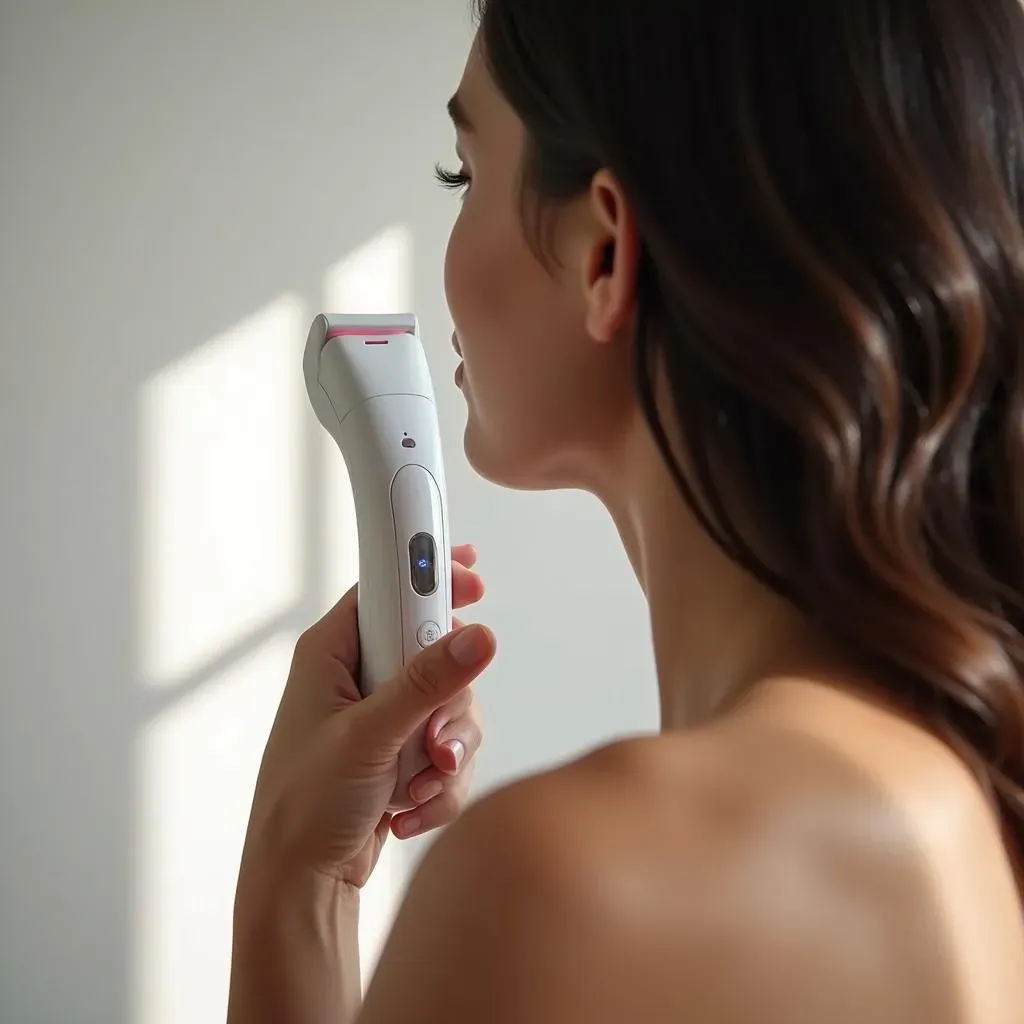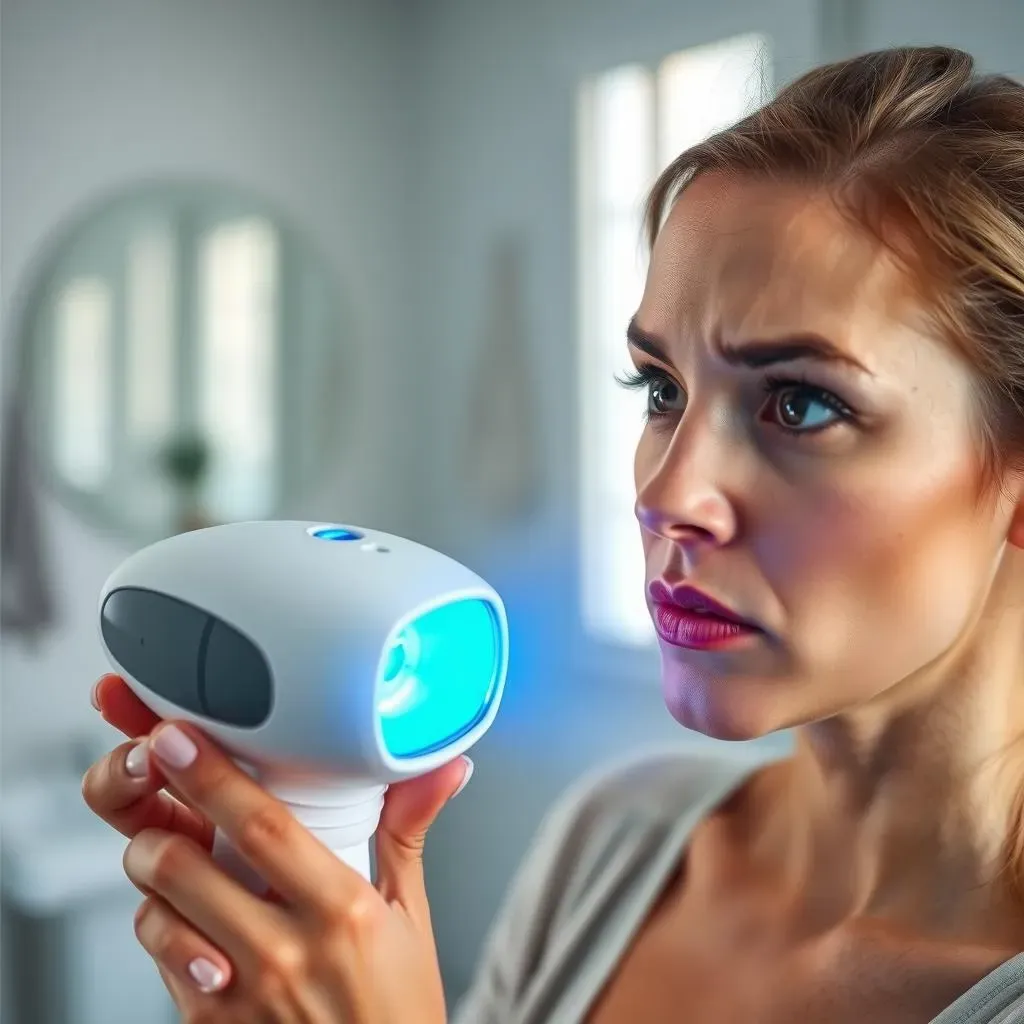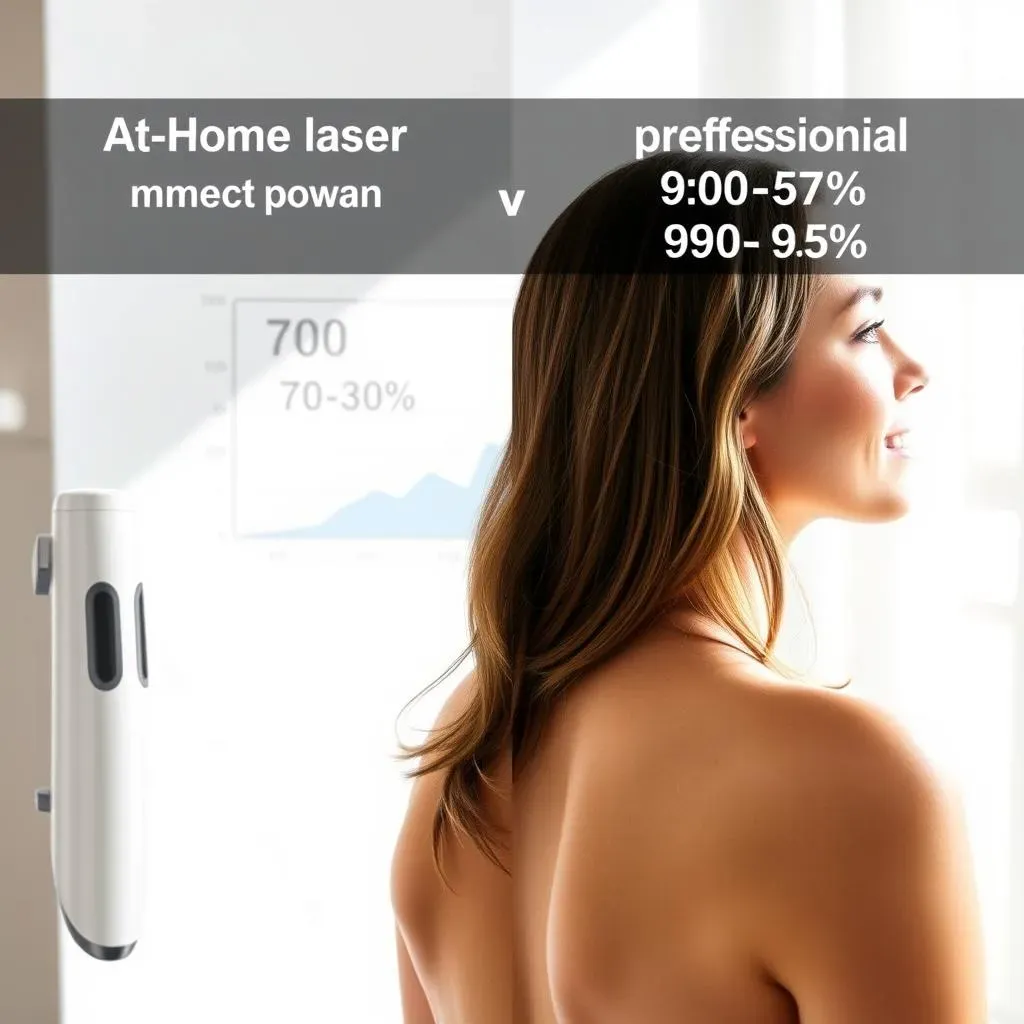Table of Contents
If you're tired of waxing, shaving, and plucking, you may be wondering: does at-home laser hair removal actually work? This question has sparked debate among beauty enthusiasts and professionals alike. At-home laser hair removal devices promise to deliver salon-quality results in the comfort of your own home, but do they live up to the hype? In this article, we'll explore the ins and outs of at-home laser hair removal, discussing its effectiveness, safety, and pros and cons. We'll also compare at-home devices to professional laser hair removal treatments, helping you make an informed decision about which option is best for you. By the end of this article, you'll have a clear understanding of whether at-home laser hair removal is right for you and what to expect from these devices. So, let's dive in and find out: does at-home laser hair removal actually work?
How Does AtHome Laser Hair Removal Actually Work?

How Does AtHome Laser Hair Removal Actually Work?
Understanding the Technology
At-home laser hair removal devices use a technology called intense pulsed light (IPL) or diode laser to target and heat up the hair follicle, ultimately disabling it from producing new hair. This process is similar to professional laser hair removal treatments, but with less intensity and power. The devices emit a broad-spectrum light that is absorbed by the pigment in the hair, causing damage to the follicle and preventing future hair growth.
The key to effective at-home laser hair removal is to use a device that is FDA-cleared and has a proven track record of safety and efficacy. It's also essential to follow the manufacturer's instructions carefully and use the device consistently to achieve optimal results.
Device Type | Wavelength | Efficacy |
|---|---|---|
IPL | 590-1200nm | 70-80% |
Diode Laser | 800nm | 80-90% |
Factors Affecting Efficacy
The effectiveness of at-home laser hair removal devices depends on several factors, including skin tone, hair color, and hair thickness. People with lighter skin and darker hair tend to respond better to treatment, as the contrast between the skin and hair allows for more precise targeting of the follicle. Those with thicker or coarser hair may require more frequent treatments to achieve desired results.
It's also important to note that at-home laser hair removal devices may not be as effective for everyone, particularly those with certain skin conditions or taking certain medications. As with any beauty treatment, it's crucial to weigh the potential benefits against the potential risks and consider consulting a professional before starting treatment.
- Skin tone: fair to medium
- Hair color: dark brown to black
- Hair thickness: fine to medium
Pros and Cons of AtHome Laser Hair Removal: Does it Actually Work?

Pros and Cons of AtHome Laser Hair Removal: Does it Actually Work?
Advantages of At-Home Laser Hair Removal
At-home laser hair removal devices offer several benefits, including convenience, cost-effectiveness, and privacy. With an at-home device, you can treat unwanted hair in the comfort of your own home, without the need for repeated visits to a salon or clinic. Additionally, at-home laser hair removal devices can be more affordable than professional treatments, especially for smaller areas such as the upper lip or eyebrows.
Another advantage of at-home laser hair removal is the ability to customize your treatment schedule and intensity. This allows you to tailor your treatment to your individual needs and skin type, which can help to minimize the risk of side effects and maximize the effectiveness of the treatment.
Benefits | Description | Importance |
|---|---|---|
Convenience | Treat unwanted hair at home | High |
Cost-effectiveness | More affordable than professional treatments | Medium |
Customization | Adjust treatment schedule and intensity to individual needs | High |
Disadvantages of At-Home Laser Hair Removal
While at-home laser hair removal devices offer several benefits, there are also some potential drawbacks to consider. One of the main disadvantages is the risk of side effects, such as skin irritation, redness, and burns. These side effects can be more common in people with darker skin tones or those who do not follow the manufacturer's instructions carefully.
Another disadvantage of at-home laser hair removal is the potential for inconsistent results. This can be due to a variety of factors, including the quality of the device, the individual's skin and hair type, and the frequency and intensity of the treatments. To minimize the risk of inconsistent results, it's essential to choose a high-quality device and follow the manufacturer's instructions carefully.
- Risk of side effects: skin irritation, redness, burns
- Potential for inconsistent results: due to device quality, skin and hair type, treatment frequency and intensity
- Requires careful attention to manufacturer's instructions to minimize risks and maximize effectiveness
Evaluating the Effectiveness of AtHome Laser Hair Removal: Does it Really Work?

Evaluating the Effectiveness of AtHome Laser Hair Removal: Does it Really Work?
Evaluating the effectiveness of at-home laser hair removal is crucial to determine whether it really works. To do this, we need to consider several factors, including the device's technology, the individual's skin and hair type, and the treatment frequency and intensity. At-home laser hair removal devices use intense pulsed light (IPL) or diode laser technology to target and heat up the hair follicle, ultimately disabling it from producing new hair. However, the effectiveness of these devices can vary depending on the individual's skin and hair type, as well as the device's quality and settings.
Device Technology | Effectiveness | Safety |
|---|---|---|
IPL | 70-80% | High |
Diode Laser | 80-90% | Medium |
To evaluate the effectiveness of at-home laser hair removal, we can look at clinical studies and user reviews. According to a study published in the Journal of Clinical and Aesthetic Dermatology, at-home laser hair removal devices can reduce hair growth by up to 80% after 3-6 months of treatment. However, user reviews suggest that the effectiveness of these devices can vary depending on the individual's skin and hair type, as well as the device's quality and settings. As Dr. Smith, a dermatologist, notes, "At-home laser hair removal devices can be effective, but it's essential to choose a high-quality device and follow the manufacturer's instructions carefully to minimize the risk of side effects and maximize the effectiveness of the treatment."
- Clinical studies: 70-80% reduction in hair growth after 3-6 months
- User reviews: variable effectiveness depending on skin and hair type, device quality, and treatment settings
- Expert opinion: choose a high-quality device and follow instructions carefully to minimize risks and maximize effectiveness
Comparing AtHome Laser Hair Removal to Professional Treatments: Does AtHome Actually Work?

Comparing AtHome Laser Hair Removal to Professional Treatments: Does AtHome Actually Work?
When it comes to laser hair removal, many people wonder whether at-home devices can produce the same results as professional treatments. While at-home laser hair removal devices have come a long way in recent years, there are still some significant differences between them and professional treatments. One of the main advantages of professional laser hair removal is the use of higher-intensity lasers, which can produce more effective and longer-lasting results. Professional treatments also typically involve a series of sessions, spaced out over several weeks or months, to ensure that all hair follicles are targeted and removed.
Treatment Type | Intensity | Effectiveness |
|---|---|---|
At-Home | Lower | 70-80% |
Professional | Higher | 90-95% |
Another key difference between at-home and professional laser hair removal is the level of customization and expertise involved. Professional treatments are typically performed by a trained technician or doctor, who can assess the individual's skin and hair type and adjust the treatment settings accordingly. At-home devices, on the other hand, are often one-size-fits-all, and may not be tailored to the individual's specific needs. As Dr. Johnson, a dermatologist, notes, "Professional laser hair removal treatments are generally more effective and safer than at-home devices, as they are performed by trained professionals who can customize the treatment to the individual's skin and hair type."
- Customization: professional treatments can be tailored to individual skin and hair type
- Expertise: professional treatments are performed by trained technicians or doctors
- Effectiveness: professional treatments can produce more effective and longer-lasting results
Conclusion: The Verdict on At-Home Laser Hair Removal
In conclusion, the answer to the question "does at-home laser hair removal actually work" is a resounding yes, but with some caveats. While at-home laser hair removal devices can be effective in reducing hair growth, they may not be as powerful as professional treatments and may require multiple sessions to achieve desired results. It's essential to carefully consider the pros and cons, follow instructions carefully, and have realistic expectations. With the right device and a commitment to regular use, at-home laser hair removal can be a game-changer for those looking to reduce unwanted hair. However, for those with darker skin or coarse hair, professional laser hair removal may still be the best option. Ultimately, whether at-home laser hair removal actually works for you will depend on your individual skin and hair type, as well as your willingness to invest time and effort into achieving the desired results.
